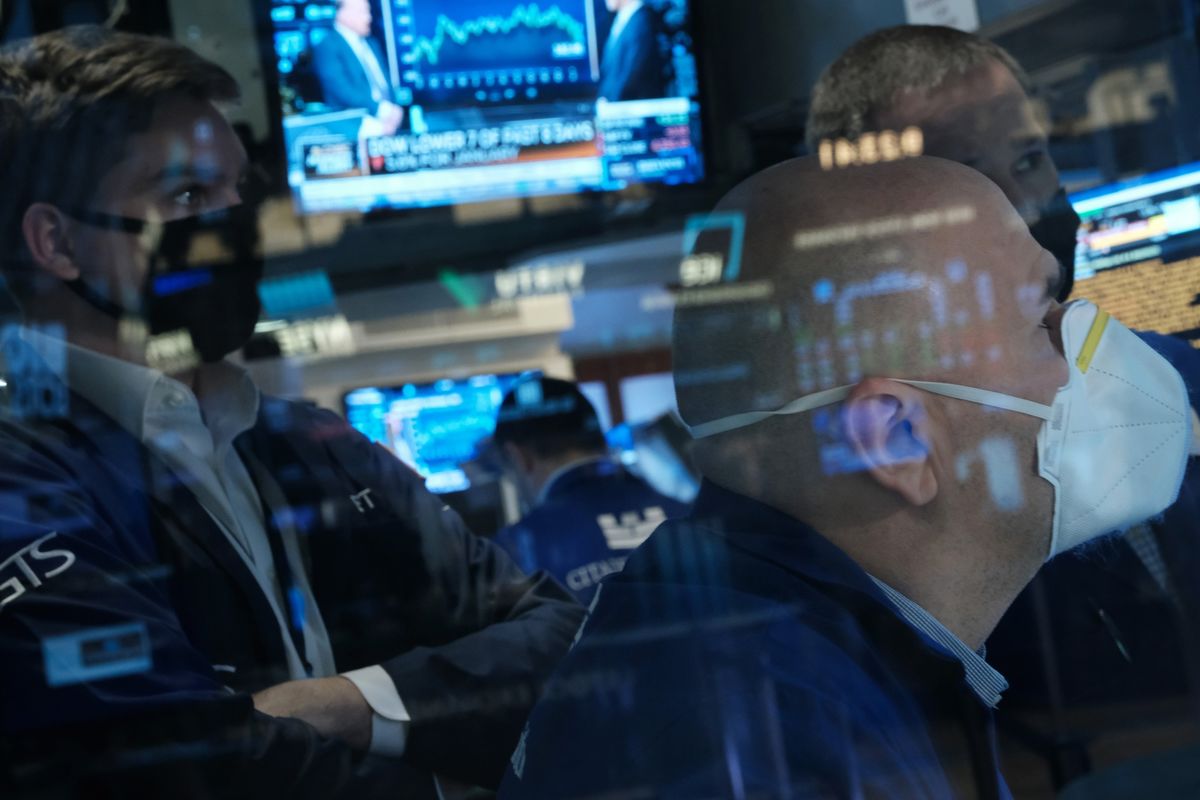The selloff in the MSCI ACWI Index has dramatically lowered valuations of companies across the US and Europe, but strategists from Michael Wilson at Morgan Stanley to Robert Buckland at Citigroup Inc. expect stocks to fall further amid worries of high inflation, hawkish central banks and slowing economic growth.
According to Bank of America Corp., money is leaving every asset class, and investors are rushing out of names like Apple.
The strategist at Comdirect Bank said that investors continue to reduce their positions. Sentiment needs to improve a lot more to form a potential floor.
On the other side, there are people who say that the downturn has created pockets of value across sectors, which is valued on future earnings growth and, therefore, shunned during periods of high interest rates. The week ended with the Nasdaq 100 down 2%.
The chairman of Great Hill Capital said that old school tech stocks, such as Intel Corp and Cisco Systems Inc., should be bought.
The broader market looks to be collapsing as the recession creeps into the conversation. The focus on inflation at the Federal Reserve and other central banks means that investors can’t count on the monetary panacea that has helped to keep alive the long-running bull market.
The S&P 500 has dropped more than twice as much as the Stoxx Europe 600, and the MSCI ACWI has fallen for six weeks in a row.
Key metrics show the potential downside of stock markets.
Falling very fast.
The S&P 500 has been above its moving average for most of the bear markets except for the tech bubble and the financial crisis. Canaccord Genuity strategists say there could be more declines on Monday on forced margin selling after another red week for the US benchmark.
Stressing out.
Stress indicators aren’t at levels seen during comparable slumps despite the recent declines in the S&P 500 Less than 30% of the benchmark’s members have hit a one-year low, compared with more than 50% during the growth scare and more than 80% during the global financial crisis.
The 14-day relative strength index shows that the S&P 500 isn’t at the floor yet. The US benchmark has not yet hit oversold territory, which is usually a sign of a rebound.
Getting defense.
The specter of slowing growth has caused demand for defensive stocks to go up. The strategists at Morgan Stanley andBarclays believe that the decline in the Stoxx 600 defensives index will continue. Panseri sees pricing for a recession in the relative performance.
The potential for more to come is also shown by the comparison of past periods of defensive strength. The performance in 2016 was brought on by a slowdown in China, and the early days of the Pandemic in 2020.
It was cheap-ish.
Although valuations of technology stocks have fallen sharply, some strategists expect them to remain under pressure from aggressive monetary tightening by the central banks.
According to Bank of America, tech stocks suffered their biggest weekly outflow of the year. According to a technical analyst at Day By Day SAS, the sector is at risk of losing another 10% before finding a floor.
Dan Boardman-Weston, chief executive of BRI Wealth Management, doesn’t think we have seen capitulation yet. The investor sentiment in the technology area has been shot to pieces. We are going to have a hard few weeks and months ahead.
The assistance was given by Jan-Patrick Barnert, Gaurav Panchal, Anna Edwards, and Tom Mackenzie.
